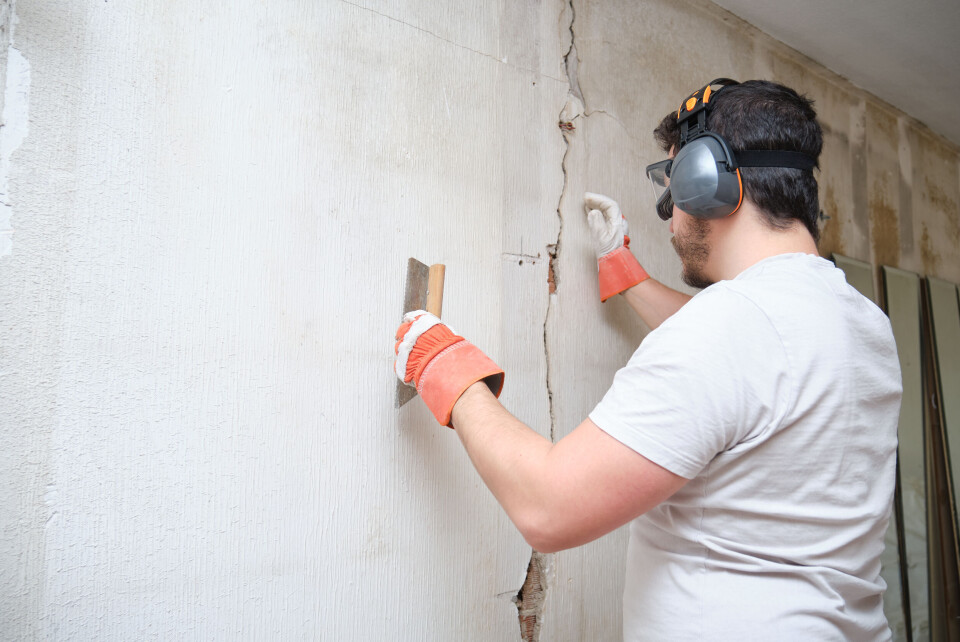-
Map: Car insurance costs rise in France - see the average in your region
Multiple studies show that costs are rising by around 5% year-on-year, with major differences by region and vehicle model
-
French crafts in focus: Traditional dry-stone walling
Sébastien Heurtevent is leading a resurgence as an artisan murailler de pierres sèches in the Haute-Garonne region
-
New natural disaster zones declared in south-east France
Property owners have 30 days to make a claim due to damage by landslides, mudslides, or flooding
Drought damage claims could get easier due to reforms and Météo-France
The weather reporter is changing how it supplies data for ‘natural catastrophe’ declarations

Homeowners should have more chance of making successful claims for drought damage to their property later this year, providing new legislation comes into force as planned.
Reforms to existing rules will see the sum paid by homeowners into the ‘natural catastrophe’ pot – currently around €8 a year – rise to approximately €10, although the figure will vary from policy to policy.
At the same time, Météo-France is changing its reporting standards to give a more precise description of drought conditions.
This is a key factor in deciding if a ‘natural catastrophe’ can be declared in communes, which opens the door for claims.
Homeowners can make insurance claims only after a decree declaring a catastrophe naturelle (natural disaster) in their area has been issued.
Read more: France’s ‘catastrophe naturelle’ insurance system and how to claim
Report criticised for contradictions
Sandra Marsaud, MP for the government’s Renaissance party who represents Charente, co-wrote a report on the subject with members of the Green party, but did not vote for their subsequent bill.
It passed in a nearly empty chamber in April.
“The Green’s proposal is too badly written and contains too many contradictions, and has now entered a parliamentary shuffle from which it will probably not emerge,” Ms Marsaud told The Connexion.
“However, a month before, the government published an ordinance, which could be converted into law by parliament in the summer. The decrees bringing it into force should follow soon after.”
Read more: Support for French drought damage bill ‘a good start’
Further report requested by PM deemed as time-wasting
Shortly after this, Prime Minister Elisabeth Borne appointed another MP, Vincent Ledoux, to write a further report on the subject.
This dismayed groups campaigning for drought insurance reforms, who said vital time was being lost.
Six organisations, led by Lorraine Cata Sécheresse, pointed to six proposed law changes and reports since a reform was first proposed in 2020 by Senator Nicole Bonnefoy.
This was passed by the Senate but not considered by MPs.
“Why do we need a new report?” they asked. “Even so, we are prepared to work quickly with Mr Ledoux if he thinks he can do better than all the people who have worked on the subject before him.”
Insurance company reforms could favour claimants
Key features of the ordinance, which will be included in the Ledoux report, are stricter regulation of insurance assessors, the removal of a distinction between cosmetic and structural damage, and the reform of the natural catastrophe funding pot.
Cracks to properties are usually caused when the clay soil that houses are built on shrinks during droughts, and then swells when it rains.
At the moment, many victims end up dissatisfied with the insurance assessor’s report, and have to hire their own experts to support their claim before challenging the insurance company.
Under the new ordinance, assessors will have to receive formal training, be registered, and be held personally responsible, with possible fines, if their assessment is proved wrong.
Insurance firms had fought for a distinction to be made between ‘cosmetic’ cracks and those causing structural damage, but Ms Marsaud said this has been rejected.
Read more: How much has home insurance gone up in your part of France?
Météo-France change natural catastrophe data
She added that the changes being made by Météo-France to how they measure the impact of drought were at least as important as the legal process.
“In order to get a natural catastrophe declaration, your mayor must ask the prefecture, and the prefecture then refers the request to a national committee,” she said.
“It uses data from Météo-France, and Météo-France has recognised that its standards, of looking at 8km squares, satellite measurements and ground stations which can be a long way away, are not precise enough. They are now moving to 1.5km squares.”
Rainfall figures over one drought month and the two months preceding it are averaged, and then compared to the last 50 years to see if the drought enters the ‘natural catastrophe’ framework.
Tangible improvements expected soon
Ms Marsaud said that at least 10 million houses in France are potentially at risk from drought-related cracks.
“It is not just modern houses,” she said. “There have been some cases in isolated regions of the Sarthe, for example, where old houses, with thick stone walls, have been damaged too.”
Ms Marsaud insisted there was cross-party support for improvements to existing legislation.
“It is something that the administration has been working on for years, across all three ministries concerned – environment, finance and interior – so I am confident we will soon see tangible improvements.”
Related articles
New website tells you the water restrictions in your part of France
June earthquake in France: Who is in official natural disaster zone?
Home damage, wildfires: How warmer climate is forecast to alter France
























